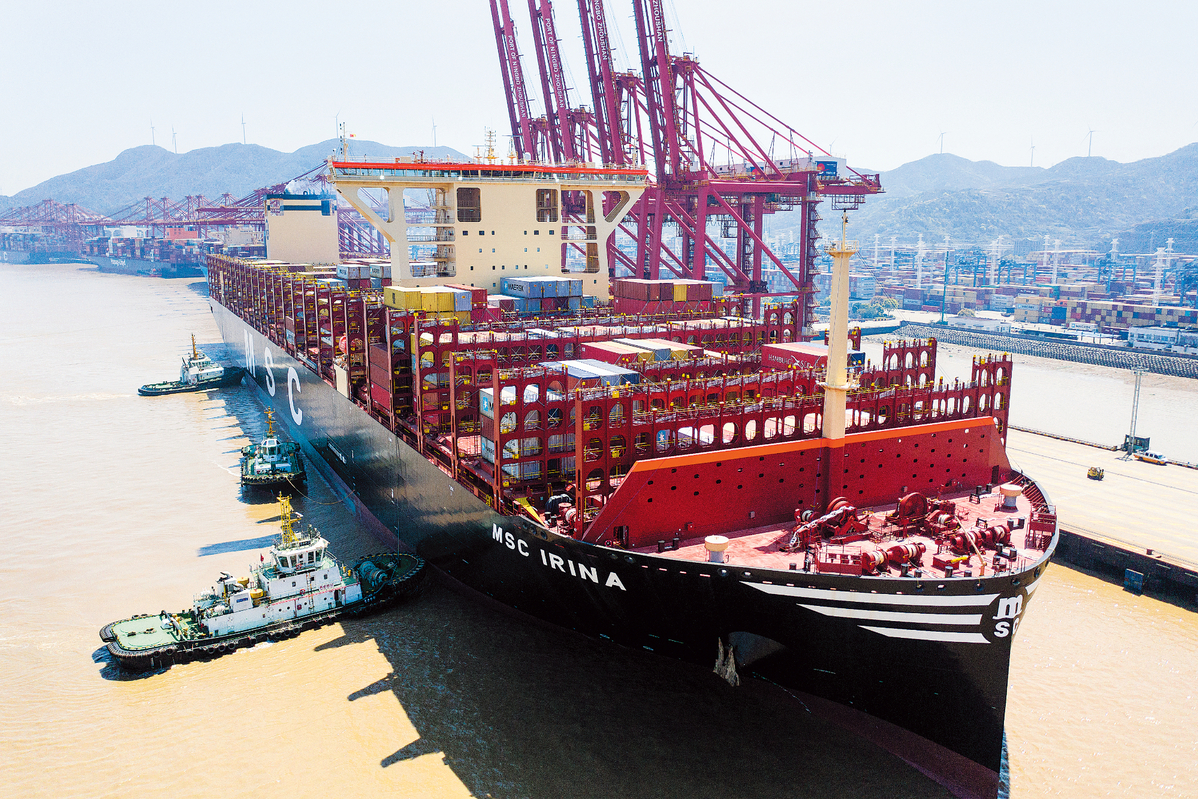Bullwhip effects broader horizons for exporters
China Daily | Updated: 2023-04-21 07:35

China's exports to the United States fell 17 percent in the first quarter. Some attribute that to the decoupling of the world's two largest economies, as well as manufacturing enterprises moving from China to Southeast Asia, particularly Vietnam.
But that is a wrong interpretation.
The decline in China's exports to the US is mainly due to the slump in US demand and the bullwhip effect, which refers to the distortion of demand and increased volatility that occurs as forecasts and orders move from the retailer up to the manufacturer. Basically, when a spike in demand occurs, each party in the supply chain adds additional products to their orders to act as a buffer, which necessarily weakens the demand when they enter a destocking stage.
Statistics show that in the first quarter of this year, US container imports dropped by nearly 23 percent year-on-year, and bilateral trade between Vietnam and the US dropped by 19 percent year-on-year.
Thanks to its robust trade with Southeast Asia and other emerging market economies, China's exports in the first quarter still increased by 8.4 percent year-on-year. China has found more baskets to put its eggs in even as the US pushes to decouple.
After the outbreak of the novel coronavirus in 2020, the requirements for working at home and the policy of monthly subsidies for residents in the US led to a surge in the consumption of household appliances, furniture and other daily necessities. That's why China, the major manufacturer of these products, saw a remarkable increase in its exports to the US over the past three years, despite the US administration's attempts to rid the US of its heavy reliance on imports from China.
In the first quarter of last year, when the US adjusted its epidemic control policy, people rushed outdoors, and the government's financial subsidies to households also came to an end, leading to a sharp drop in demand for such goods. This has been followed by overheating inflation in the country, rising interest rates and this year's financial turmoil, which have continued to weigh on people's economic expectations and their willingness and ability to spend. Wholesalers and retailers meanwhile still have a huge stock of these products due to the large amounts of orders they had made before the end of the pandemic.
Since the beginning of last year, the US has entered a destocking phase, resulting in a significant reduction in orders. The current round of active destocking by the US is likely to last through 2023.
Moreover, some retailers and brands in the US have used bankruptcy and the reorganization of some US banks as an excuse to delay their payments to factories in China, and some have even long defaulted on a large number of factory payments, resulting in some new orders being rejected by the Chinese enterprises, prompting them to look for new markets other than the US.
-21ST CENTURY BUSINESS HERALD
























